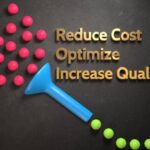In an age dominated by data, productivity, and performance, the concept of being “soul sourced” has emerged as a quiet but powerful countercurrent. It speaks to a way of living, leading, and creating that draws not from fear or external validation, but from a deeper, inner reservoir of authenticity and truth. In the simplest terms, being soul sourced means living and making decisions from the soul rather than from ego, obligation, or conditioning. The term blends spirituality with grounded self-awareness, bridging ancient wisdom and modern psychology. For individuals, it’s a call to act from integrity; for leaders, it’s an invitation to lead with empathy, intuition, and higher consciousness. The searcher looking to understand “soul sourced” is often seeking clarity on how to align inner purpose with outer action, how to work and live with meaning rather than burnout, and how to lead with genuine connection. This article offers a deep exploration of what being soul sourced truly means, how it manifests in personal and professional life, and how it can transform the way we approach growth, relationships, and leadership in the 21st century. “When you align your life with your soul, everything external begins to follow with graceful coherence,” said spiritual author Marianne Williamson, reflecting the essence of what this movement represents.
Understanding the Meaning of Soul Sourced
To be soul sourced is to act from a center of truth that transcends the surface personality. It implies a life driven not by external outcomes but by an inner compass that points toward authenticity. The soul, in this context, represents the timeless core of who we are — unclouded by fear, expectation, or comparison. When individuals operate from this level of consciousness, decisions feel lighter yet more purposeful. There’s a quiet certainty that doesn’t depend on applause or recognition. Soul sourcing asks us to listen to intuition, that subtle voice often drowned out by logic or social pressure. It’s not about rejecting ambition but about realigning ambition with essence. In corporate and creative settings alike, being soul sourced nurtures integrity and wholeness. As one psychologist aptly stated, “True alignment begins where external approval ends.”
The Psychological Foundation of Being Soul Sourced
From a psychological perspective, living soul sourced is an advanced form of self-integration. Carl Jung’s concept of individuation closely mirrors this process: the journey of harmonizing conscious and unconscious parts of the self. When people live disconnected from their inner values, they experience what psychologists term “incongruence” — a split between who they are and how they act. This gap manifests as anxiety, dissatisfaction, or a sense of meaninglessness. Soul sourcing closes that gap. It integrates emotional intelligence, mindfulness, and purpose into everyday choices. It’s a movement from reaction to reflection. Neuroscience supports this as well: practices that enhance self-awareness — meditation, journaling, deep breathing — activate brain regions tied to empathy and insight. Living soul sourced isn’t abstract mysticism; it’s a psychological shift toward coherence, where the mind, heart, and actions resonate in harmony.
How Soul Sourcing Differs from Ego-Driven Living
Ego-driven living is rooted in scarcity and separation, where identity is built upon comparison, control, and competition. In contrast, soul sourcing operates from abundance and unity. It’s not about superiority but sincerity. Ego seeks validation; soul seeks expression. When one is ego-driven, decisions are often fear-based — fear of loss, judgment, or inadequacy. Soul sourcing replaces fear with trust. It doesn’t deny the ego but places it in service to something higher. A soul sourced individual doesn’t abandon goals but redefines success as alignment rather than accumulation. “Ego says: once everything falls into place, I’ll find peace. Soul says: find peace, and everything falls into place,” noted Eckhart Tolle. This mindset shift transforms relationships, careers, and leadership styles, creating a ripple of conscious change across teams and communities.
Table 1: Comparison Between Ego-Driven and Soul-Sourced Living
| Aspect | Ego-Driven Approach | Soul-Sourced Approach |
|---|---|---|
| Motivation | External validation | Inner fulfillment |
| Decision-Making | Fear and control | Trust and intuition |
| Leadership Style | Command-based | Empathy and collaboration |
| Emotional State | Reactive and defensive | Grounded and open |
| Definition of Success | Material and status-based | Purpose and integrity-based |
The Spiritual Essence of Being Soul Sourced
Spiritual traditions across the world have long emphasized the importance of aligning human will with divine wisdom. Whether in Hindu dharma, Christian mysticism, or Sufi poetry, the idea of living from the soul has been the heart of transcendence. In today’s modern reinterpretation, soul sourcing is not tied to any particular religion; it’s a universal awakening to the essence of being. It invites one to listen inwardly, to sense guidance not from authority but from consciousness itself. The practice cultivates humility — not as weakness but as openness to something greater. Through meditation, contemplation, or mindful silence, one begins to discern between the noise of the mind and the music of the soul. This spiritual grounding brings a calm confidence, where decisions flow effortlessly, and life unfolds with synchronicity rather than struggle.
The Role of Soul Sourcing in Leadership
Leadership has evolved beyond metrics and management; it now demands presence and empathy. A soul sourced leader inspires not through authority but through authenticity. They lead by example, grounded in self-awareness and compassion. Such leaders understand that influence grows from trust, not fear. In organizations, this creates psychological safety — an environment where creativity and collaboration thrive. Employees feel seen, valued, and empowered. The Harvard Business Review once observed that “the most effective leaders today are those who embody purpose and authenticity.” That’s the essence of soul-sourced leadership: guiding from within. It’s also deeply sustainable. Unlike charisma-based influence, which fades when external energy depletes, soul-sourced leadership regenerates from inner alignment.
Table 2: Core Qualities of a Soul-Sourced Leader
| Quality | Description |
|---|---|
| Self-Awareness | Knows personal values and limitations |
| Empathy | Understands and connects with others emotionally |
| Integrity | Aligns decisions with moral and spiritual principles |
| Intuition | Trusts inner guidance alongside logic |
| Presence | Fully engaged in the moment and situation |
How to Cultivate a Soul-Sourced Mindset
Cultivating a soul-sourced mindset requires intentional practice and self-reflection. It begins with slowing down — giving space for inner signals to be heard. Journaling can reveal hidden motives and repetitive patterns. Meditation quiets the analytical mind, allowing intuitive insight to surface. Nature, too, acts as a mirror, reminding us of flow and balance. The process also involves releasing attachments: the need to please, to perform, or to prove. Instead, one cultivates the courage to simply be. Over time, clarity replaces confusion. Choices become less reactive and more responsive. Daily rituals — such as morning reflection, gratitude listing, or silence before decision-making — ground the practice. As one teacher once said, “You can’t hear your soul when the world is too loud.”
Soul Sourcing in Relationships and Communication
Relationships thrive when rooted in authenticity, and being soul sourced transforms how we connect with others. Communication becomes less about persuasion and more about understanding. There’s a shift from defensiveness to curiosity. Instead of reacting to conflict, one responds with presence. This type of interaction fosters emotional safety and deeper intimacy. In professional settings, it builds trust and reduces toxic dynamics. Soul sourcing in communication means listening beyond words — sensing the emotional truth behind them. It’s recognizing that every conversation is an exchange of energy, not just information. When communication flows from the soul, it uplifts rather than drains.
The Connection Between Energy and Soul Sourcing
Energy awareness is a key dimension of soul sourcing. Every thought, emotion, and intention carries frequency. When aligned with the soul, energy feels expansive, light, and magnetic. When disconnected, it feels heavy or fragmented. Energy management — through rest, boundaries, and mindfulness — ensures the soul’s signal remains clear. This understanding turns self-care into a spiritual responsibility. It’s not indulgence; it’s maintenance of inner alignment. Many intuitive leaders report that when they maintain energetic clarity, synchronicities increase — opportunities appear effortlessly. Thus, energy becomes the language through which the soul communicates in the material world.
The Business Application of Soul Sourcing
In business, being soul sourced may sound unconventional, but it is increasingly relevant. Companies that integrate purpose and consciousness outperform competitors in engagement and innovation. A soul-sourced entrepreneur leads with vision rather than vanity. They see business as a vehicle for contribution, not just profit. Decision-making balances analytics with intuition. Marketing shifts from manipulation to meaning — resonating with authenticity. Employees aligned with purpose exhibit higher creativity and resilience. As business author Simon Sinek said, “People don’t buy what you do; they buy why you do it.” The “why” is where the soul lives.
The Emotional Benefits of Soul Sourcing
Emotionally, soul sourcing creates equilibrium. It reduces the inner tug-of-war between expectation and authenticity. Anxiety often stems from living in conflict with one’s truth. When we act from the soul, self-trust deepens, and anxiety dissipates. There’s also greater resilience to criticism or failure because one’s sense of worth isn’t externally anchored. Emotional literacy improves; we become capable of naming and navigating feelings without suppression. Over time, joy becomes less conditional and more constant. As Rumi wrote, “When you do things from your soul, you feel a river moving in you, a joy.”
The Evolutionary Aspect of Soul Sourcing
Human evolution is not just biological but consciousness-based. Soul sourcing represents the next step — moving from reactive survival to creative awareness. It signifies maturity of the collective psyche, where humanity begins to act from empathy rather than ego. This transformation begins with individuals who choose inner alignment over external conformity. As more people embody this state, systems and societies begin to shift toward inclusivity, sustainability, and compassion. Evolution, then, becomes not about domination but integration — a return to unity consciousness where every action arises from soulful intelligence.
Challenges in Living Soul Sourced
Living soul sourced isn’t without challenges. The world still rewards speed, competition, and conformity. It takes courage to pause when everyone is rushing, to listen inwardly when external voices are loud. There’s also the fear of being misunderstood or judged for unconventional choices. However, authenticity often requires solitude before resonance. Over time, the outer world adjusts to inner truth. The key is persistence and faith in the process. Spiritual maturity develops not through perfection but through presence. The journey may demand shedding old identities, but what remains is far more enduring — one’s essence.
Conclusion
The soul-sourced way of living marks a profound evolution in human consciousness — a shift from survival to self-realization. It invites us to replace external striving with inner alignment, to rediscover purpose not as a goal but as a state of being. In every role — parent, professional, leader, artist — the soul-sourced approach cultivates integrity, creativity, and compassion. It bridges the spiritual and the practical, proving that depth and success can coexist. Ultimately, to be soul sourced is to live in rhythm with the truth of one’s essence. In that alignment, life stops being something we control and becomes something we co-create. As the poet Hafiz once wrote, “The sun never says to the earth, ‘You owe me.’ Look what happens with a love like that — it lights the whole sky.”
FAQs
1. What does “soul sourced” actually mean?
It refers to living and making decisions guided by inner truth rather than fear, social conditioning, or ego. It’s about aligning actions with one’s authentic self and purpose, leading to clarity, peace, and fulfillment.
2. How can I tell if I’m not living soul sourced?
You may feel constant stress, lack of direction, or inner conflict. If most of your choices seek approval rather than peace, you’re likely operating from ego, not soul.
3. Can businesses truly operate in a soul-sourced way?
Yes. Soul-sourced businesses prioritize purpose, authenticity, and emotional intelligence. They balance profit with people and planet, fostering loyalty and innovation.
4. Is soul sourcing a religious concept?
No. While it aligns with spiritual principles, soul sourcing transcends religious boundaries. It’s a universal human experience of inner alignment and authenticity.
5. How do I start living soul sourced daily?
Begin with mindfulness and reflection. Listen to intuition, practice gratitude, and make small decisions aligned with your truth. Over time, this becomes a natural state of being.











